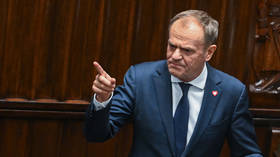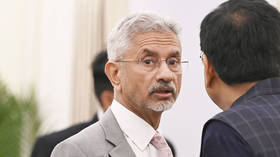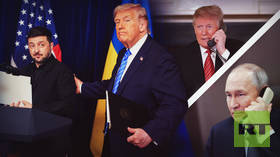Eurovision song contest becomes ‘political and cultural irrelevance’
In a time of austerity, countries that have ditched the Eurovision think that the once a year “infomercial of poor taste pop” has turned into a “political and cultural irrelevance,” Srdja Trifkovic, foreign affairs editor of Chronicles Magazine, told RT.
RT:Your country, Serbia, is one of the
countries turning down Eurovision participation this year, why is
that?
Srdja Trifkovic: Because the Eurovision Song
Contest has become a political as well as a cultural irrelevance.
Back in the 1990s, it suddenly became much more important in
central and eastern Europe than it used to be, because many newly
independent countries of the former Yugoslavia and the former
USSR wanted to put their name on the panel so to speak and it was
the period where Croatia, Bosnia-Herzegovina, Macedonia, Moldova,
Ukraine, Georgia, Azerbaijan and others jumped on the bandwagon.
But for many, many years in musical terms, in artistic terms it
has been a rather worthless contest and nowadays both politically
and culturally its significance has declined. So in a period of
austerity, in a period when modest resources have to be matched
against almost unlimited requirements, I believe that this
decision was made by so many countries because they have
concluded that the Eurovision Song Contest simply doesn’t matter.
RT:But some say that wining and
subsequently hosting Eurovision can provide a boost for the
country’s image as well as its tourism. Isn’t it worth the
sacrifice to at least invest in some of these two factors to
carry on and be part of Eurovision?
ST: Well, I believe the experts who know more
about this than I do, have tried to correlate the benefits versus
the cost and have come to the conclusion that to have once a year
an infomercial connected with poor taste popular pop or simple
weirdness.
RT:What about the countries who do take
part in this competition, do you think the crisis or the
austerity and bailouts could affect the way people vote? It’s
been said sometimes that people vote differently because of the
political side of things?
ST: Well, we’ve seen political voting all along.
For instance, Cyprus and Greece awarded each other 12 points,
while giving zero to Turkey. The Scandinavians in particular are
notorious. The Swedes and Norwegians giving Denmark 12 and
visa-versa, and also Finland and Estonia help each other...
So there is no real correlation between voting patterns and the
quality of the entries themselves. And as I have already said
that quality can be pretty dismal most of the time. And even that
one global hit that emerged from the Eurovision Song Contest,
Abba’s Waterloo, from 1974, is just a typical example of cheesy
tra-la-la europop.
The statements, views and opinions expressed in this column are solely those of the author and do not necessarily represent those of RT.












